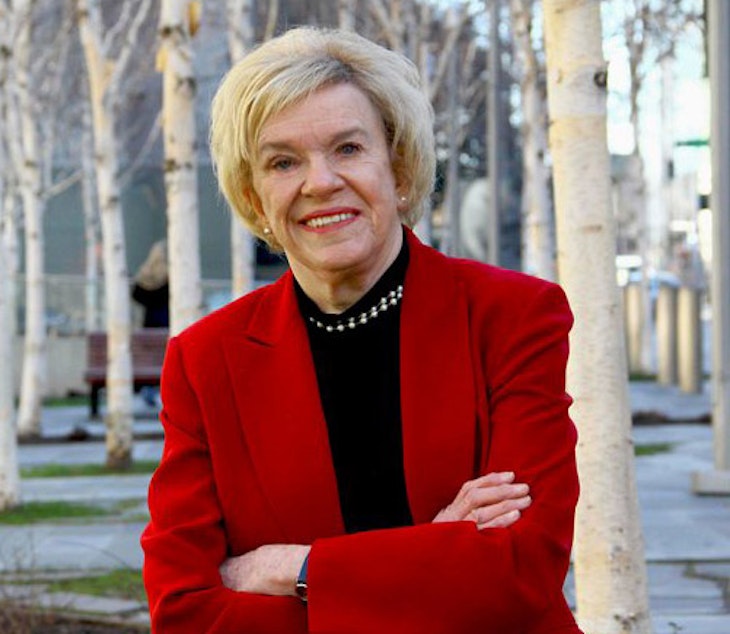Seattle Women Earn Less Than Men. The City Wants To Change That

City of Seattle employees who are women earn on average 9.5 percent less than men.
The City Council on Tuesday passed two measures to target that wage gap. One creates three new staff positions focused on initiatives to close the gap. The second is a resolution that lays out the steps the city plans to take toward that goal. One way to achieve that would be to offer employees more family-friendly arrangements, such as paid parental leave and flexible work arrangements.
"I was shocked to find out the city has no paid parental leave program – none,” said Councilwoman Jean Godden said. Godden is the chair of the City of Seattle’s Gender Equity in Pay task force.
Paid time off for new parents is rare in the U.S. However, it’s an employee benefit that can help to equalize pay between men and women, according to a recent report from the city's task force.
The report finds that women who receive paid maternity leave are more likely to return to work and earn higher wages than those who take unpaid leave. The city has hired a consultant to figure out the costs and logistics of a new paid parental leave policy for city workers. The task force recommends the policy allow at least 12 weeks of paid leave in addition to other paid leave benefits.
Sponsored
The wage gap among city employees is still better than across the city, however.
A 2013 report from the National Partnership For Women And Families found that Seattle has the largest gender wage gap among big U.S. cities. According to the report, Seattle women earn 73 cents for every dollar a man earns, amounting to a yearly gap of $16,346 between men and women who work full time. Nationwide, women earn 77 cents for every dollar men make.
Godden said she hopes their efforts will spur citywide changes.
“We’re closing the wage gap here in the city, and I do hope that we’ll be able to expedite changing it here in the region,” Godden said. “To find out that we are the worst in the U.S. of any metropolitan area – that was a shock.”
Godden said city officials plan to meet with business leaders in coming weeks to discuss ways to eliminate the wage gap across Seattle.
Sponsored
In Boston, the city asked companies to sign a pledge to voluntarily work toward pay equity. Godden said that’s one option for Seattle. Citywide legislation, with more teeth, is another.

